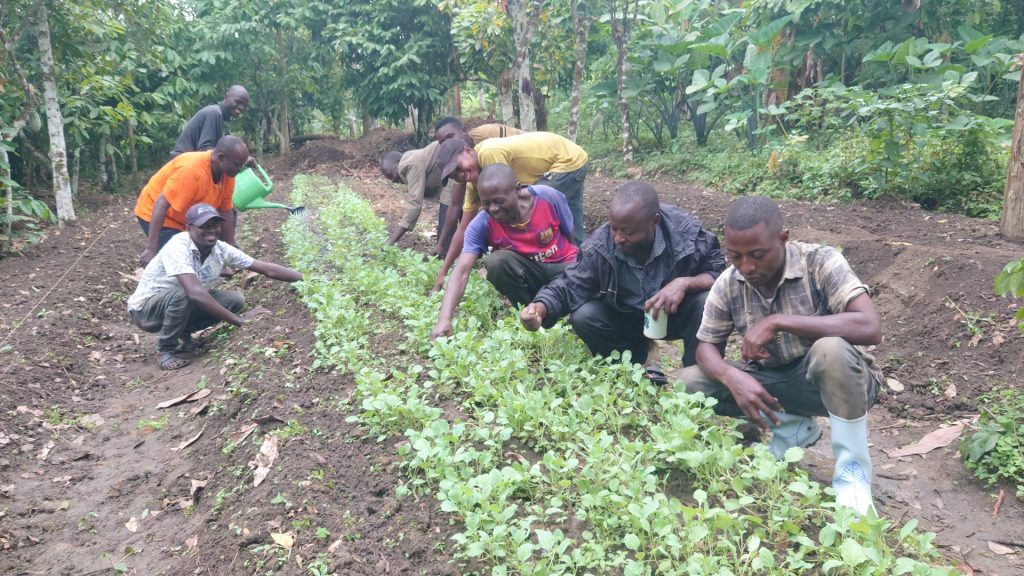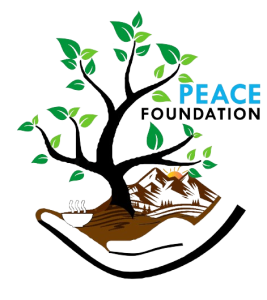Permaculture
Premaculture
Permaculture is a practical and positive way of designing, thinking, living and gardening with nature for abundance and care. The concept is localized and discussed to a level as a systems thinking model and action approach of working with nature based on 12 foundational design principles to facilitate a sustainable habitat, sustainable livelihoods and total shift from scarcity to abundance.
Highlight on the Evolution of permaculture
History and trends in the development of permaculture movement as a worldwide phenomenon based on three permaculture ethics, their implication and application to a new revolutionary approach to sustainability. Permaculture traces its way back in mid 1950s and 1973 from the works of Fremande and David Homolgen in Western Australia and Tasmania respectively. Since this time, permaculture has developed world over through the works of Permaculture agencies and institutionary world leaders through online and practical permaculture trainings and support worldwide.
Mugerwa Mugisha Fred, through the PEACE Foundation Bundibugyo, its members and supporting friends have not only introduced permaculture in the district but also hereby champion permaculture movement in the district and its neighbouring communities purpose of freeing many souls, saving lives from the captivity of food insecurity, hunger and malnutrition and safeguarding planet earth from and depletion collapse.
People Care

Permaculture is about humanity, social cohesion and peace. As such the ethic requires understanding and appreciation of society as a central pillar to development. Thus permaculture harnesses actions that are in the best interest of the society, of the people we live and work with.
From a social perspective, people care creates pathways to addressing social issues and meeting community needs through permaculture actions such as increasing production, diversity, and the quality of produce that meet health and nutritional food needs, creating pathways to sustainable food sovereignty from seed to market and plate, improving food storage and preservation as well as value chain development initiatives, securing a clean water supply and access including water chain management practices, encouraging the use of and training on natural medicine, alongside the /combined with modern medicine , improving household health and hygiene practices−especially for kitchens, water, toilets, and wise and sensitive waste management informed by permaculture principles. Permaculture promotes equality, security, and opportunities for all people to thrive through equal and fair opportunities for and rights and participation of men, women, youths and children.
Permaculture facilitates improvement in standards and life conditions in terms of peoples’ access to essential services, justices and peace in a local economy. People care means taking action to reduce social burden, hard work and reducing costs of meeting individual and community needs through innovative options like sharing trading knowledge and resources etc. through working together with traditional cultures and strengthening them through collaborating with people, not forcing new ideas onto people. This is can be achieved through encouraging and using traditional ceremonies, beliefs, and knowledge as a stepping stone to new alternative narrative cognizant of traditional culture and indigenous knowledge through permaculture education teaching children and adults through art, stories and practices about appropriate permaculture literature in books, posters, video recordings to meet their immediate and future needs.
Permaculture Ethics
Permaculture ethics are the core tripartite etiquettes on which permaculture is grounded. They define the purpose and direction of permaculture action. During the training it was clarified that all following three permaculture ethics carry a considerate importance. Thus,
Earth care
Understanding and appreciating the contribution of planet earth, the different constituent elements making up the planet earth, Its needs and challenges resulting from human action. Thus taking a deliberate and conscious obligation to safeguard the earth, to transform the state of nature and natural resources and systems as key to the healthy and sustainable future. Understanding of features such as;
- Natural resources like forests and the plants, animals, birds, and insects.
- Lakes, rivers, water catchment areas like the mountains and estuaries/sanctuaries
- The mountain and other natural water catchments landscapes
- The air and atmosphere and thus safeguarding against any action that damages, pollutes, or destroys the natural environment & ecosystems.
- If earth care actions are note considered in our priority actions the incidence of the effect goes to the people, their habitats and livelihoods.
- The benefits of this being in form of; resilient land forms and natural resource, human habitats, sustainable food productivity due to enhanced soil health and performance, increased food and income security patterns at household and community level. Improved protection, health and resilience of the surrounding environment and the people around its radius and neighborhoods.
Fair share
This ethical obligation commits us to a social and corporate responsibility beyond people care. Thus it centers much more on fairness, equity values in our thought patterns and actions for redistribution of surplus. Fair share however promotes inclusive pathways of sharing returns, benefits, and their redistribution, giving back to the community as well sharing costs/obligations. As such sharing the surpluses in permaculture leads to enhanced opportunities for peace, equality, increased cooperation and security and contentment of all, strengthens community resilience and efficient use of resources and benefits from community resources.
On the other side, hoarding of surpluses is likely to result into surplus waste, and disposal of what other community members need most as it’s the case that in some countries up to 50% of food is not eaten but thrown out as waste despite the increasing food scarcity world over; energy and other resource waste such as water, soil, forests, etc.; creation of equality gag, divisionism and envious habits and disunity which disrupt growth and development.
The 12 Permaculture Design Principles
These are the fundamental design guidelines that shape permaculture action and harmoniousness with nature and humanity. Being the centre of permaculture thinking and action, learning and mastering the principles requires a field based/practical session and explanation to, interactively examine each principle at a time. Clustered into human attitude/behavioural, design and ecological principles they are;
- Observe & interact
- Catch and store energy
- Obtain a yield
- Apply self-regulation and accept feedback
- Use & value renewable resources & services
- Produce no waste
- Design from patterns to details
- Integrate rather than segregate
- Use small and slow solutions
- Use and value diversity
- Use edges and value to marginal.
- Creatively use & respond to change
PEACE Foundation believes that Mind-set shift is fundamental recipe for social transformation through permaculture.
The mind defines our world view, attitudes and perceptions that translate into our implicit and explicit actions. As such mind-set change is the core of permaculture success, thus catalyzing social and ideological adjustment to suit with the new realities and demands of nature, society and growing dynamics over time is everyone’s obligation towards a successful permaculture path following the 12 fundamental principles of permaculture.
What we do is simple
Creating learning spaces and providing trainings on permaculture, influencing and connecting people to love nature and the environment, supporting individuals and community groups implement their own permaculture designs using simple resources and permaculture tools. This is done through almost all our projects/programs PEACE Foundation works with farmer cluster groups to provide knowledge, skills and practices and fill identified gaps through community based permaculture design trainings/permaculture teaching trainings and other career specific permaculture trainings. Organising and supporting adults to learn and act through functional skills training programs linked to immediate needs and life challenges at farm level, business level while integrating essential social issues such as environmental crisis issues, human rights issues, gender, children development and food security and advocacy.
